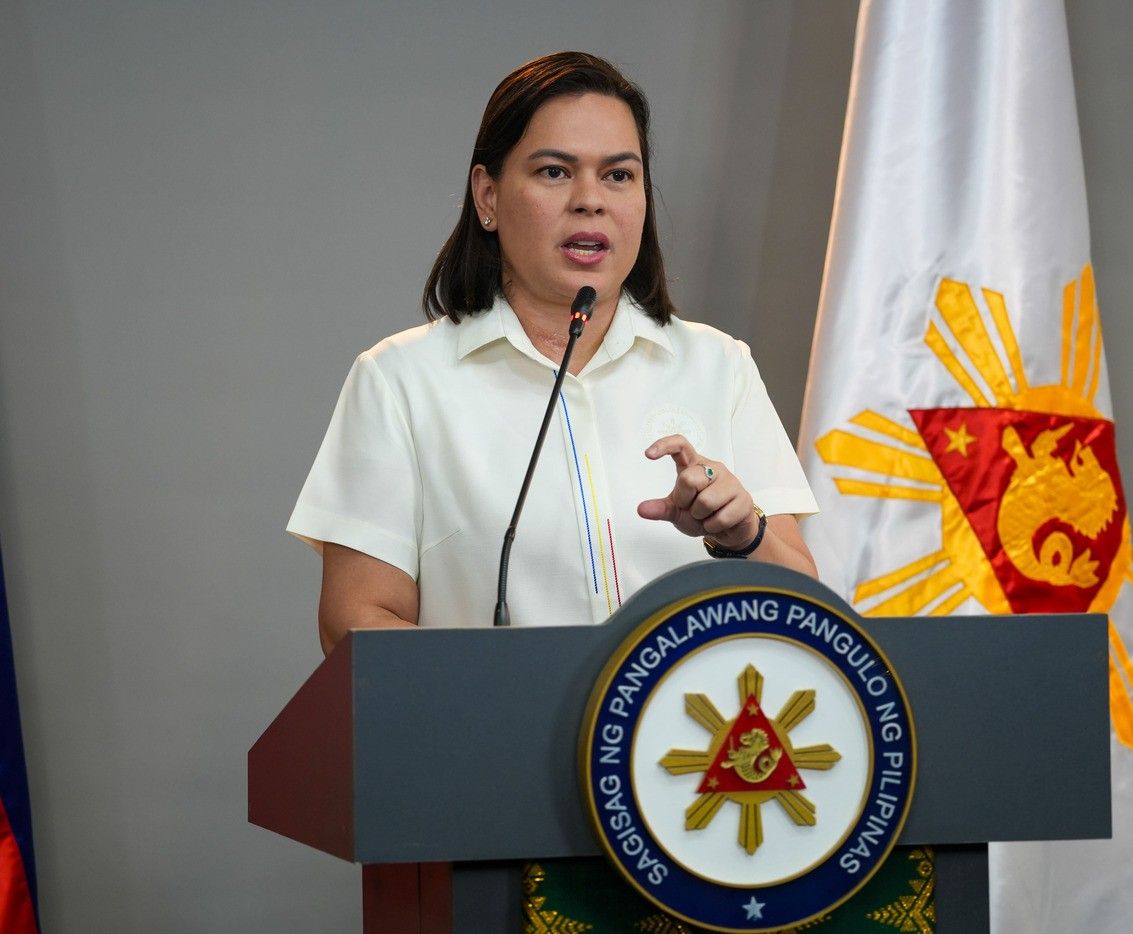Understanding public's sentiment on impeachment, inflation

Results from the latest Social Weather Stations survey show that 41% of Filipinos agree with the impeachment complaint filed against Vice President Sara Duterte in the House of Representatives, while 35% disagree. A significant 19% remains undecided on the issue.
Moreover, survey results also show that among the allegations, which may serve as the basis for the Vice President’s impeachment, 46% of Filipinos put weight on the unexplained spending of confidential and intelligence funds by the Office of the Vice President and the Department of Education, while 36% believe that her refusal to answer investigations regarding the use of confidential and intelligence funds may lead to her impeachment.
The controversies surrounding the vice president’s use of her confidential and intelligence funds, and her refusal to answer questions about these, once again bring to light the importance of transparency and accountability of public officials.
Transparency in government transactions is essential to preventing corruption. When officials openly disclose how public funds are allocated and spent, it becomes more difficult to engage in corrupt practices without detection. In the case of Vice President Duterte, the lack of transparency regarding the utilization of substantial confidential and intelligence funds has raised public suspicion and concern.
The Filipino people have a right to know how their taxes are being used, especially when it involves billions in taxpayers’ money allocated without clear justification. Officials’ refusal to explain such expenditures erodes public trust and fosters a culture of impunity.
The consequences of corruption are tangible: misallocated resources lead to inadequate public services, and the diversion of funds hampers national development.
Conversely, transparency benefits the public by promoting efficient use of resources, enhancing trust in government institutions, and encouraging civic engagement. When citizens are properly informed of how their taxes are utilized, they can participate more effectively and, perhaps, even more enthusiastically in democratic processes, such as the upcoming 2025 elections.
Like transparency, holding public officials accountable is also fundamental to a functioning democracy. Without accountability, corruption can flourish unchecked, weakening democratic institutions and undermining the rule of law. In the Philippines, there have been numerous instances where politicians involved in graft and corruption have evaded justice, perpetuating a cycle of impunity.
The impeachment complaint against Vice President Duterte underscores the necessity of accountability mechanisms.
Failing to address allegations of misconduct not only diminishes public trust but also emboldens others to engage in similar behavior, knowing there are minimal repercussions. A robust system of accountability ensures that officials are answerable for their actions, deterring corruption and promoting ethical governance.
What about the significant 19%, who remain undecided about the impeachment? This is where access to information becomes pivotal. As a former journalist, I’ve always believed that access to credible information empowers citizens to demand accountability from their leaders.
A free and independent media can help shed light on important issues by investigating and reporting on government activities. However, the Philippine media has faced significant challenges, including attacks and harassment from the previous Duterte administration, leading to the erosion of public trust toward traditional media.
Strengthening the media's capacity to provide accurate and unbiased information, and building back the public’s trust toward credible media organizations are vital to ensuring an informed citizenry. When journalists can operate without fear of reprisal, they shed light on government actions and help the public make a more informed stand on matters of national concern.
***
Another set of survey results that made the headlines this week is the SWS poll on sell-rated poverty. The December 2024 survey found that 63% of Filipino families consider themselves as poor, the highest self-rated poverty level in 21 years or since November 2003.
This result is consistent with the findings of a November 2024 Pulse Asia survey, which showed that for 74% of Filipinos, controlling inflation remains to be their most urgent national concern. This was followed by increasing the pay of workers (36%), reducing poverty of many Filipinos (31%), and creating more jobs (27%).
Consequently, these economic challenges have coincided with the continuous decline in President Ferdinand Marcos Jr.'s trust ratings, reflecting public dissatisfaction with the government's response to these issues.
To address these challenges, there is a need for the Philippine government to more aggressively pursue an investment-led growth strategy focused on job creation and economic empowerment. By attracting both domestic and foreign investments, the country can stimulate economic activity, generate employment opportunities, and enhance competition. Increased competition can lead to improved services and lower costs of goods, directly benefiting consumers and alleviating some of the pressures of inflation.
However, significant obstacles hinder investment in the Philippines. This brings us back to the discussion on corruption, and other related hurdles such as red tape, and challenges in ease of doing business. These bureaucratic issues deter potential investors, slowing economic growth and job creation. In so many discussions we’ve had with the private sector, they could not emphasize more the absolute importance of addressing these problems to foster a conducive investment climate.
Responsive governance that prioritizes transparency, reduces bureaucratic obstacles, and promotes investment is essential to addressing the pressing issues of poverty and inflation in the Philippines. By implementing these measures, the government can restore public trust, stimulate economic growth, and improve the quality of life for all Filipinos.
Furthermore, the challenges facing the Philippines—rising poverty, persistent corruption, and economic instability—demand a unified response through collaborative governance, where the government, private sector, and civil society effectively work together.
When these sectors unite, they can address complex issues more efficiently, combining resources, expertise, and perspectives to develop sustainable solutions. Such partnerships have been instrumental in advancing good governance and development initiatives in the Philippines.
Joyce Ilas-Reyes is the deputy executive director for strategic engagements of think tank Stratbase Institute and a co-convenor of Democracy Watch Philippines.
- Latest
























